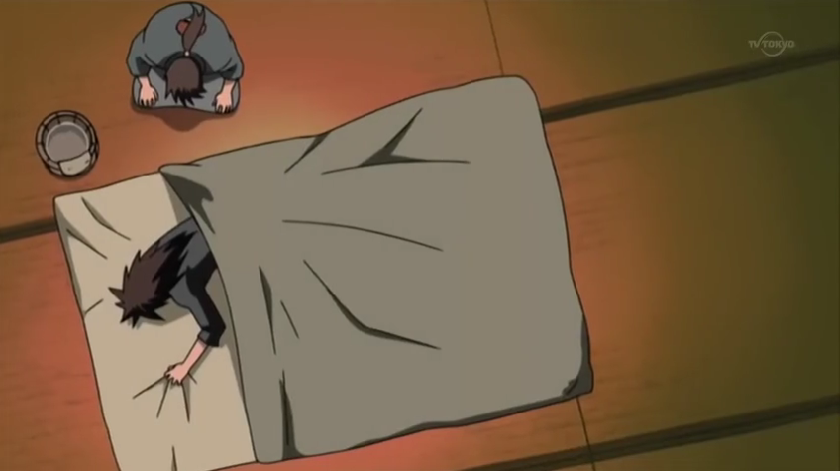Kanji 2
1/17
There's no tags or description
Looks like no tags are added yet.
Name | Mastery | Learn | Test | Matching | Spaced |
|---|
No study sessions yet.
18 Terms
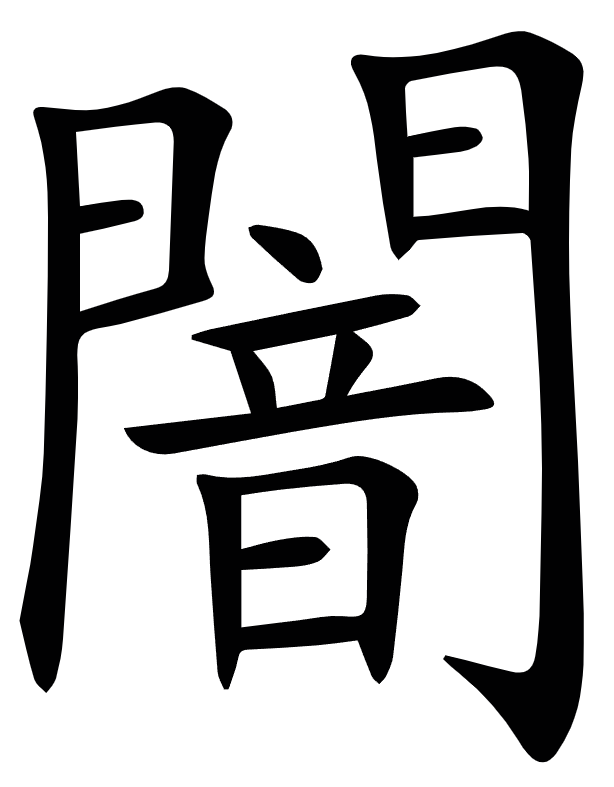
闇
darkness, the dark
Pronounced Yami as a word
ill: Itachi à Sasuke: “Mangekyō Sharingan… kono me wa tokubetsu. Kaigan shita toki kara, sono me wa yami e to mukau.” <=> 万華鏡写輪眼…この眼は特別。開眼したときから、その眼は闇へと向かう。: Mangekyō Sharingan… these eyes are special. From the moment they're awakened, they head toward darkness.
ill: Itachi parlant de Madara qui devenait aveugle: “Kono me wa tokubetsu da to. Tsukaeba tsukau hodo fūin sare, ikitsuku saki wa mattaku no yami.” (Passive stem form) <=> この眼は特別だと。使えば使うほど封印され、行き着く先はまったくの闇。: These eyes are special. The more you used them, the more they are sealed, and the destination they lead to is complete darkness.
ex: 暗闇 Kurayami: dark, darkness
ill: Poème d’Ishida: “Kotoba ni sugata ga atta nara kurayami ni tatsu kimi ni todoki wa shinai darou“ (Plain Past Indicative of aru) <=> 言葉に姿があったなら 暗闇に立つきみに届きはしないだろう: Si les mots avaient une forme, ils ne t’atteindraient pas, toi qui t’élèves dans les ténèbres.
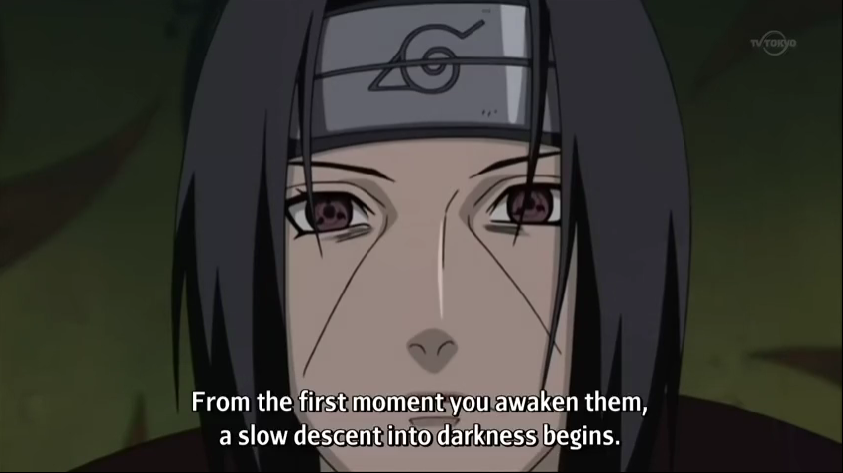
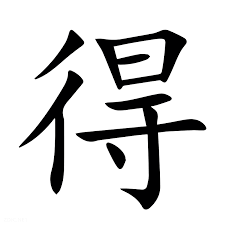
得
gain, get, find, earn, acquire, can, may, able to, profit, advantage, benefit
ex: 得る Eru: to get, to earn, to acquire, to procure, to gain, to secure
ill: Sasuke à Itachi qui lui dit que le Mangekyô Sharingan possède des risques: “Shitsumei… sore ga Kyūbi o kontorōru suru chikara o eru daishō ka.” <=> 失明…。それが九尾をコントロールする力を得る代償か。: Blindness… is that the price for gaining the power to control the Nine-Tails?
ill: Itachi à Sasuke à propos du risque du Mangekyô Sharingan: “Ōkina dōryoku... chikara o eru kawari ni, sono chikara wa mizukara toji, hikari o ushinau.” (masu stem) <=> 大きな瞳力…力を得る代わりに、その力は自ら閉じ、光を失う: Tremendous dôjutsu... In exchange for that power gain, that power closes itself and loses its light.
ex: 得る Eru/Uru: (auxiliary/suffix) to be able to …, can (after masu stem of verb)
ill: 成す Nasu: to accomplish, to do
=> 成し得る: to be capable of accomplishing
illu: Aizen à Isshin: “Hōgyoku no nōryoku wa shūi no kokoro o gugenka suru mono. Shikashi sore wa taishō ga ganrai sore o nashiuru chikara o yū shite inakereba tassei sareru koto wa nai.“ <=> 崩玉の能力は周囲の心を具現化するもの。しかしそれは対象が元来それを成し得る力を有していなければ達成される事は無い。: The Hōgyoku’s ability is to materialize the hearts (desires) of those around it. However, that does not happen if the target (le sujet) does not inherently possess (yū suru) the power capable of accomplishing it, it's not going to be achieved.
ill: ある Aru: to happen, to be, to exist
=> あり得る: to be able to happen/exist
illu: Urahara à Aizen qui se croit invincible à cause du Hôgyoku: “Mukashi no anata nara nan no saku mo naku boku ni nido mo fureru koto nado arienakatta.“ (Plain Past Indicative Form) <=> 昔のアナタなら何の策も無く僕に二度も触れる事などあり得なかった。: If (nara) it were the old you, you would never have let me be able to touch (fureru) you twice without having (naku) any (nan no) strategy (saku).
ex: 納得 Nattoku: consent, agreement, assent
=> 納得する: to consent, to agree
ill: Yuppi (Espada n°6) n’approuve pas la présence d’Orihime
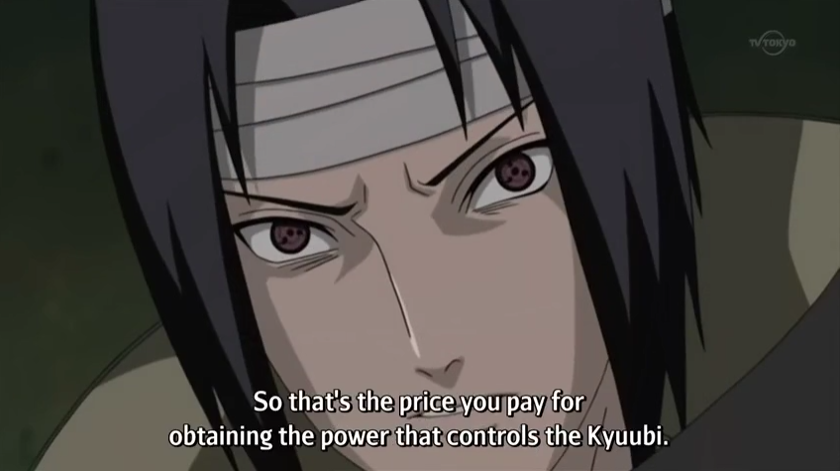
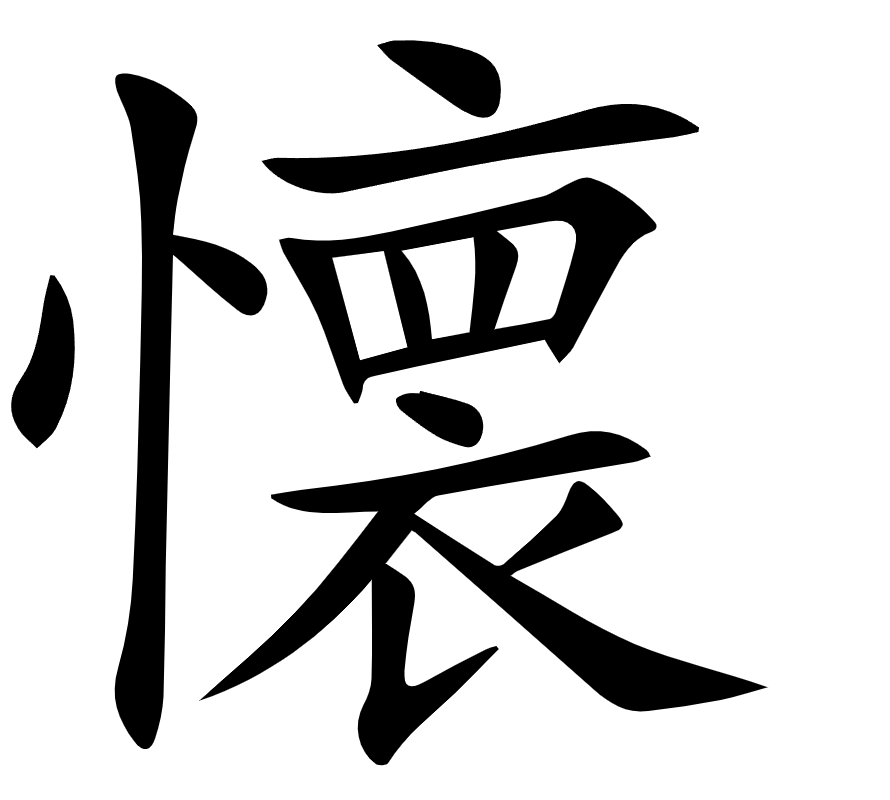
懐
nostalgia
ex: 懐かしい Natsukashii : nostalgic; dear (old), fondly-remembered; beloved; missed [Expression used when something reminds you of nice memory of the past]
ill: Gin en voyant les Vizards: “Tous ces visages nous ramènent longtemps en arrière.”
ill: Quand Kenpachi se bat contre Unohana après des années
ill: Aizen à Gin quand ils sont entre les 2 mondes: “Dangai ka… zuibun to 懐かしい kanjiru na.“ <=> 断界か…随分と懐かしく感じるな。: L’espace entre les mondes… Je me sens très nostalgique
ex: 手懐ける Tenazukeru [手なずける]: to tame, to win over
ill: Itachi telling Sasuke what kind of man Madara is: “Sono me de Kyūbi o tenazuketa saisho no otoko.” (Plain Past) <=> その眼で九尾を手懐けた最初の男。: The first man to tame the Nine-Tails with those eyes.
![<p>nostalgia</p><p><u>ex</u>: 懐かしい Natsukashii : nostalgic; dear (old), fondly-remembered; beloved; missed [Expression used when something reminds you of nice memory of the past]</p><p>ill: Gin en voyant les Vizards: “Tous ces visages nous ramènent longtemps en arrière.”</p><p>ill: Quand Kenpachi se bat contre Unohana après des années</p><p>ill: Aizen à Gin quand ils sont entre les 2 mondes: “Dangai ka… zuibun to 懐かしい kanjiru na.“ <=> 断界か…随分と懐かしく感じるな。: L’espace entre les mondes… Je me sens très nostalgique</p><p><u>ex</u>: 手懐ける Tenazukeru [手なずける]: to tame, to win over</p><p>ill: Itachi telling Sasuke what kind of man Madara is: “Sono me de Kyūbi o <em>tenazuketa</em> saisho no otoko.” (<em>Plain Past</em>) <=> その眼で九尾を手懐けた最初の男。: The first man to tame the Nine-Tails with those eyes.</p>](https://knowt-user-attachments.s3.amazonaws.com/002ce1c8-f8d8-4446-aa37-7a354516b862.png)
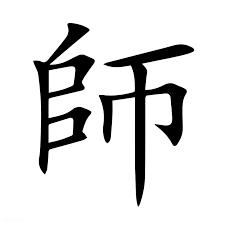
師
teacher, master
Pronounced Shi
ill: Itachi qui explique à Sasuke qui est Madara: “Ore no aibō de ari, shi de ari, fumetsu no otoko [de aru].” (masu stem car suivis par verbe) <=> 俺の相棒であり、師であり、不滅の男。: My partner, my mentor, an immortal man. [de aru = Formal of desu]
ex: 滅却師 Quincy : masters of the rejection of destruction
![<p><span>teacher, master</span></p><p><span>Pronounced Shi</span></p><p>ill: Itachi qui explique à Sasuke qui est Madara: “Ore no aibō <em>de ari</em>, shi <em>de ari</em>, fumetsu no otoko [de aru].” (<em>masu stem</em> car suivis par verbe) <=> 俺の相棒であり、師であり、不滅の男。: My partner, my mentor, an immortal man. [de aru = Formal of desu]</p><p><u>ex</u>: 滅却師 Quincy : masters of the rejection of destruction</p>](https://knowt-user-attachments.s3.amazonaws.com/7b6c6fb6-f8d6-4d46-b15e-25b2ce323200.png)
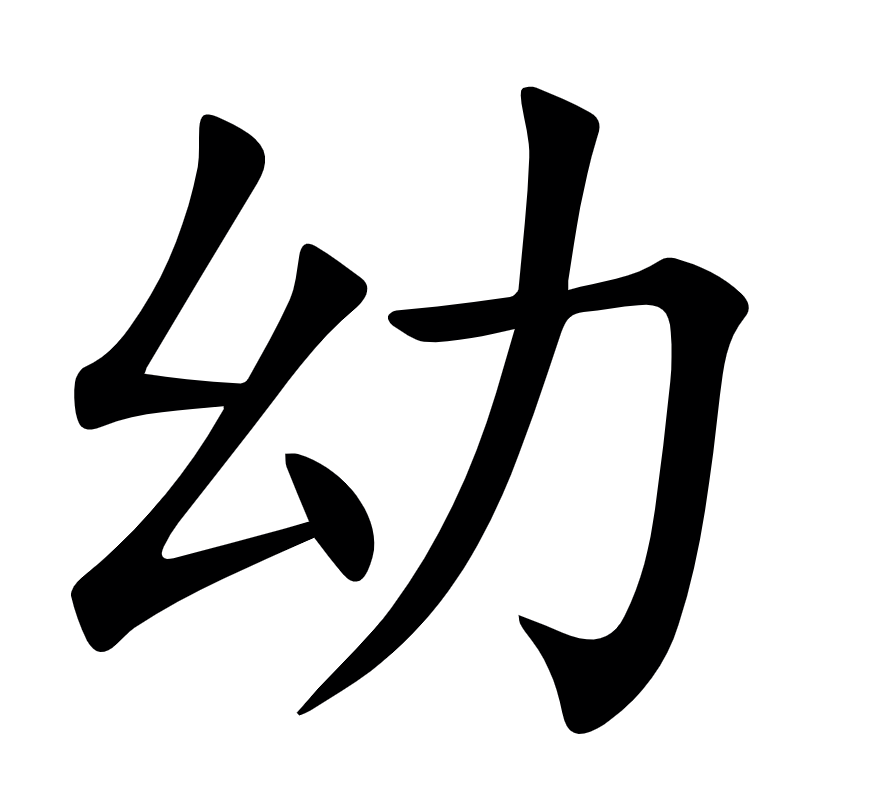
幼
infancy, childhood
ex: 幼い Osanai: very young, childish, immature
ill: Sasuke à Itachi: "Ano yoru no dekigoto... Osanakatta ore ni wa maboroshi ni shika omoekatta." (Plain Past Indicative Form de l’adj osanai) <=> あの夜の出来事… 幼かった俺には幻にしか思えなかった。: The events of that night... To me, who was very young, it seemed only like an illusion.
=> Formal, sophisticated version: 幼きOsanaki
ill: Itachi racontant l’histoire de Madara et son frère à Sasuke: “Osanaki koro yori futari wa tagai no chikara o takame ai, kisoi atta.” <=> 幼き頃より二人は互いの力を高め合い、競い合った。: Since (yori) childhood, the two of them enhanced together, competed with each other
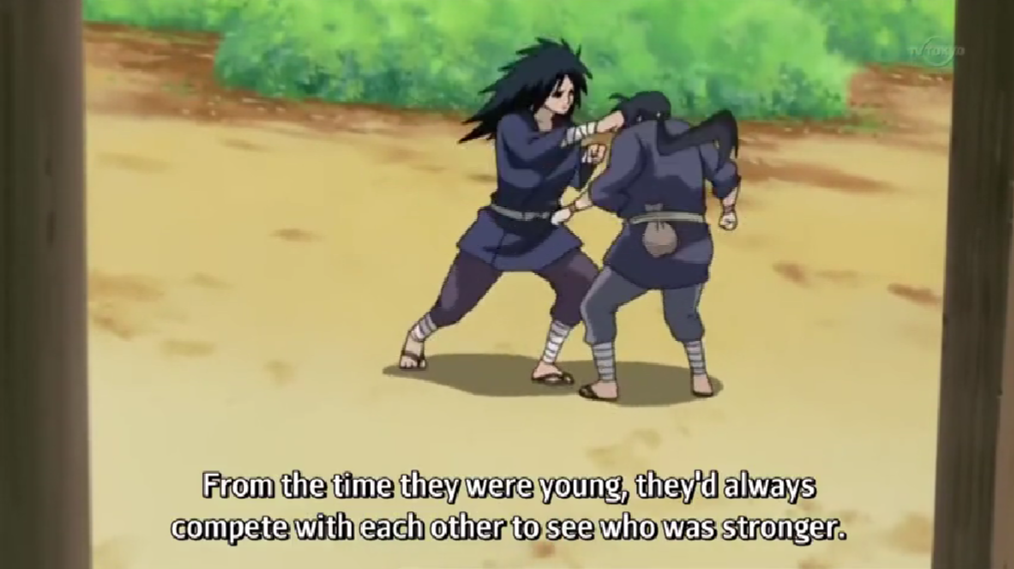
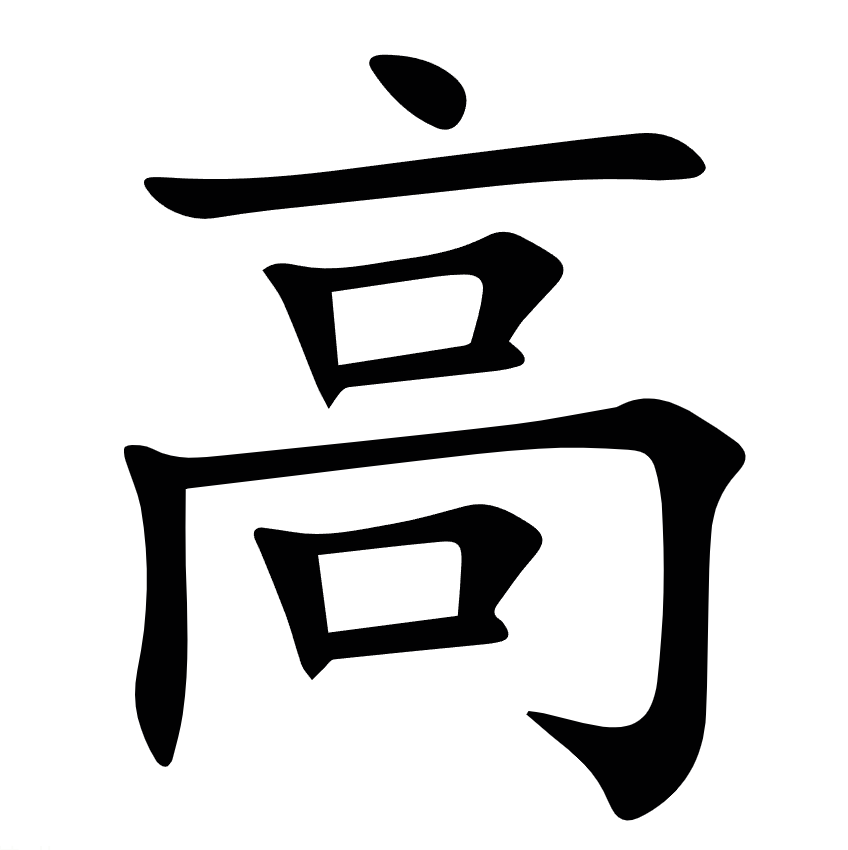
高
tall, high, expensive
ex: 高校生 Kōkōsei [こうこうせい] : senior high school student
ex: 最高 Saikô: best; wonderful; finest
ill: Aizen à Ichigo: “Kimi koso ga watashi no tankyū ni okeru saikō no sozai ni naru“ <=> 君こそが私の探究に於ける最高の素材になる: You in particular (Kimi koso) were the best subject matter for (okeru) my research (tankyû).
ex: 高み Takami: high, elevated
ill: Aizen au roi du Hueco Mundo: “Saranaru takami e nobori tsumeyou to wa omowanai ka”: Do you not think about/consider reaching even higher heights? <=> 更なる高みへ昇りつめようとは思わないか
ill: Itachi qui veut voler les yeux de Sasuke: “Hontō no takami e to chikadzuku no wa kono ore da. Soshite ima ore wa Madara o koeru chikara o yōyaku te ni dekiru!” <=> 本当の高みへと近づくのはこの俺だ 。 そして今俺はマダラを 超える力をようやく手にできる !: Je suis celui qui s'approche des véritables sommets. Et maintenant, je peux enfin obtenir le pouvoir de surpasser Madara !
ex: 高める Takameru: to raise, to lift, to boost, to enhance
ill: 高め合う Takame au: to lift each other up, to boost one another, to enhance together (takameru masu stem)
ill: Itachi racontant l’histoire de Madara et son frère à Sasuke: “Osanaki koro yori futari wa tagai no chikara o takame ai, kisoi atta.” (masu stem; Plain past) <=> 幼き頃より二人は互いの力を高め合い、競い合った。: Since (yori) childhood, the two of them enhanced together, competed with each other
![<p>tall, high, expensive</p><p><u>ex</u>: 高校生 Kōkōsei [こうこうせい] : senior high school student</p><p><u>ex</u>: 最高 Saikô: best; wonderful; finest</p><p>ill: Aizen à Ichigo: “Kimi koso ga watashi no tankyū ni okeru saikō no sozai ni naru“ <=> 君こそが私の探究に於ける最高の素材になる: You in particular (<em>Kimi koso</em>) were the best subject matter for (<em>okeru</em>) my research (t<em>ankyû</em>).</p><p><u>ex</u>: 高み Takami: high, elevated</p><p>ill: Aizen au roi du Hueco Mundo: “Saranaru takami e nobori tsumeyou to wa omowanai ka”: Do you not think about/consider reaching even higher heights? <=> 更なる高みへ昇りつめようとは思わないか</p><p>ill: Itachi qui veut voler les yeux de Sasuke: “Hontō no takami e to chikadzuku no wa kono ore da. Soshite ima ore wa Madara o koeru chikara o yōyaku te ni dekiru!” <=> 本当の高みへと近づくのはこの俺だ 。 そして今俺はマダラを 超える力をようやく手にできる !: Je suis celui qui s'approche des véritables sommets. Et maintenant, je peux enfin obtenir le pouvoir de surpasser Madara !</p><p><u>ex</u>: 高める Takameru: to raise, to lift, to boost, to enhance</p><p>ill: 高め合う Takame au: to lift each other up, to boost one another, to enhance together (<em>takameru</em> masu stem)</p><p>ill: Itachi racontant l’histoire de Madara et son frère à Sasuke: “Osanaki koro yori futari wa tagai no chikara o <em>takame ai</em>, <em>kisoi atta</em>.” (<em>masu stem</em>; <em>Plain past</em>) <=> 幼き頃より二人は互いの力を高め合い、競い合った。: Since (yori) childhood, the two of them enhanced together, competed with each other</p>](https://knowt-user-attachments.s3.amazonaws.com/ec7a97fb-7832-447f-8c0e-8bff62635520.png)
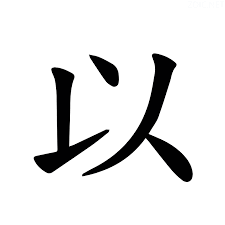
以
by means of; because; in view of; compared with
ex: 以上 Ijô: more than, further than, beyond one’s expectations (以=by means of, because,compared with)
ill: Aizen à Ichigo: “Soshite Gurimujō to no tatakai de Hollow-ka o masutā shi, Urukiora to no tatakai de ─── dôyara sore ijō no chikara o teniireta” <=> そしてグリムジョーとの戦いで虚化をマスターし、ウルキオラとの戦いで───どうやらそれ以上の力を手に入れた: Puis, through your fight against Grimmjow you mastered Hollowfication, through your fight against Ulquiorra tu as apparemment (dôyara) obtenu (teniireta) un pouvoir encore plus grand/beyond expectations (ijō).
ill: Aizen à Ichigo: “Watashi wa hontō ni Hōgyoku kansei kara hyaku-nen ijō mono aida sono arika o tsukitomerarenakatta no ka?” <=> 私は本当に崩玉完成から百年以上もの間その在り処を突き止められなかったのか?: Do you really think that for more than 100 years since the Hōgyoku’s completion, I was unable to pinpoint its location?"
ill: Kyûbi à Sasuke: “Sono dōryoku to, washi ijō ni magamagashii chakura… katsute no Uchiha Madara to onaji da na.” <=> その瞳力と、ワシ以上に禍々しいチャクラ…かつてのうちはマダラと同じだな。Those eye powers… and a chakra even more sinister than mine. You're just like the Uchiha Madara of the past.
ex: 以来 Irai: since, henceforth (désormais)
ill: Itachi racontant que Madara et son frère ont éveillé le Mangekyô Sharingan: “Sore wa Uchiha ichizoku hajimatte irai no koto datta.“ (te form) <=> それは うちは一族 始まって以来のことだった。: C’était une première depuis le commencent du clan Uchiha
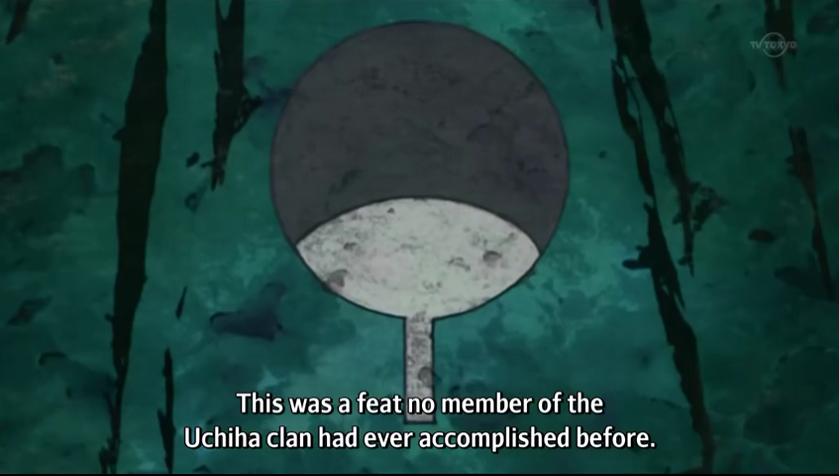
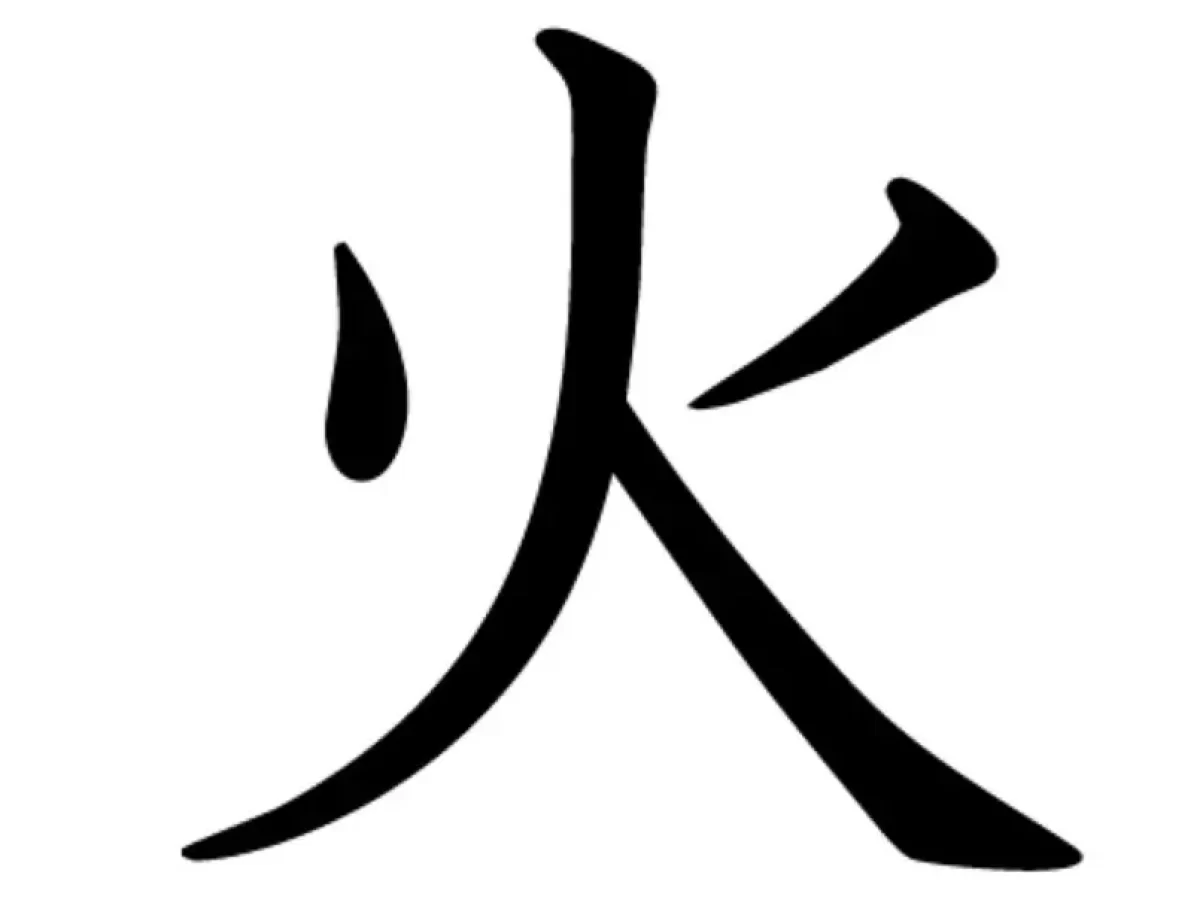
火
fire
ex: 花火 Hanabi [はなび] : feu d’artifice
ex: 火遁 Katon
ill: 火遁・豪火球の術 Katon - Goukakyuu no jutsu : la Boule de Feu Suprême
ill: 火遁・龍火の術 Katon - Ryuuka no jutsu : le Feu du Dragon
ill: 火遁・豪龍火の術 Katon - Gouryuuka no jutsu : le Feu du Dragon
ill: 火遁・炎弾 Katon - Endan (technique de Jiraya)
![<p>fire</p><p><u>ex</u>: 花火 Hanabi [はなび] : feu d’artifice</p><p><u>ex</u>: 火遁 Katon</p><p>ill: <span>火遁・豪火球の術 </span>Katon - Goukakyuu no jutsu : la Boule de Feu Suprême</p><p>ill: 火遁・龍火の術 Katon - Ryuuka no jutsu : le Feu du Dragon</p><p>ill: 火遁・豪龍火の術 Katon - Gouryuuka no jutsu : le Feu du Dragon</p><p>ill: <span>火遁・炎弾 Katon - Endan (technique de Jiraya)</span></p>](https://knowt-user-attachments.s3.amazonaws.com/3d279e0f-eda5-4136-8a7c-eacb2061b4b4.png)
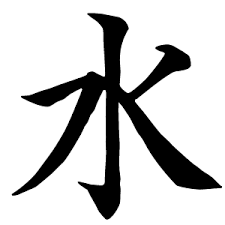
水
water
Pronounced Mizu as a word
ex: 水族館 Suizokukan [すいぞくかん] : aquarium
ex: 水月 Suigetsu : reflect of the Moon on the water
ex: 水遁 Suiton
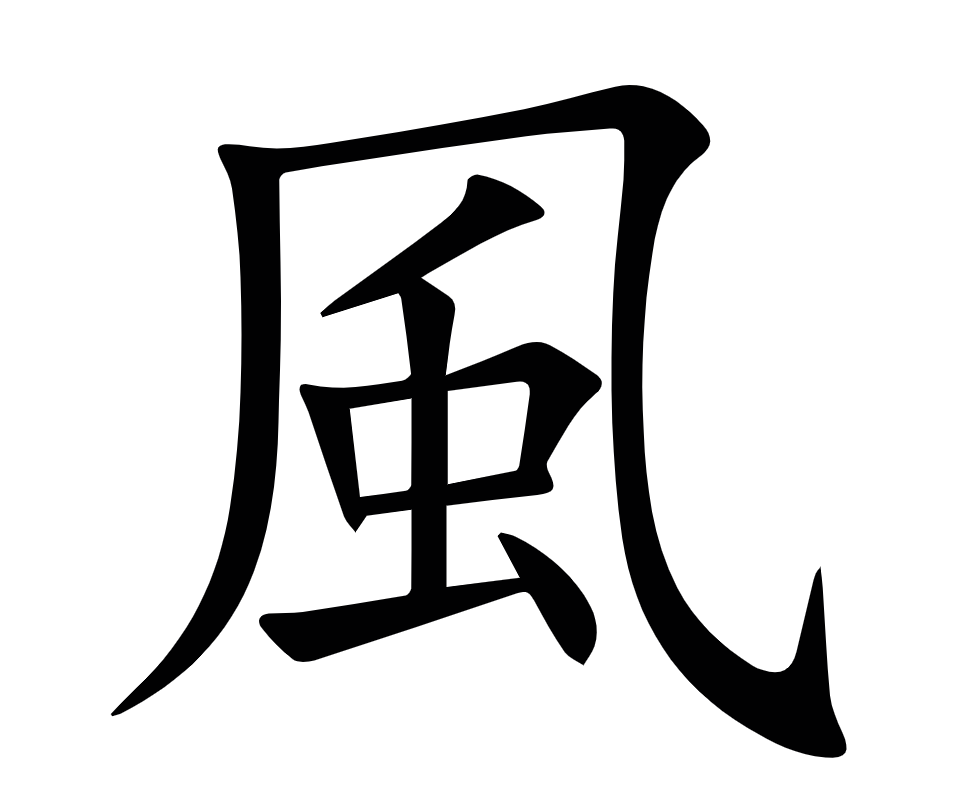
風
wind
Pronounced Kaze
ill: Espade n°7 disant à Kuchiki que toute chose sur Terre est sous le contrôle d’une autre:
“Kumo wa kaze no shihaika ni ari, gekkō wa taiyō no shihaika ni aru“ <=> 雲は風の支配下にあり、月光は太陽の支配下にある: Les nuages sont sous le contrôle du vent, le clair de la lune est sous le contrôle du soleil
ex: 風影 Kazekage: l’ombre du vent
ex: 風遁 Fûton
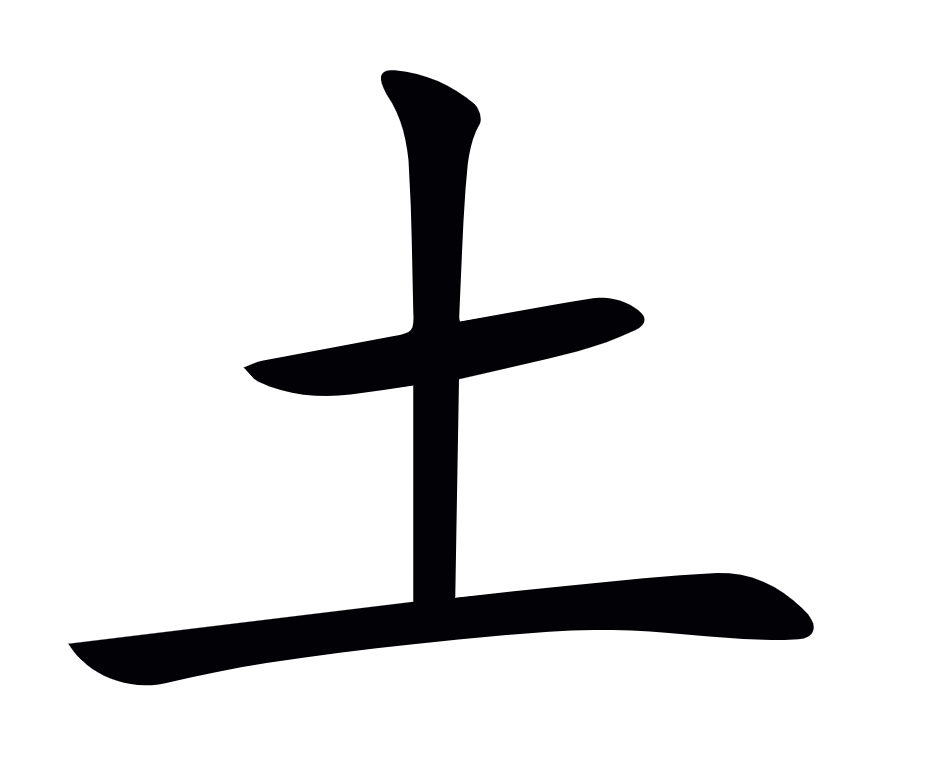
土
earth, soil
Pronounced Tsushi
ex: 土遁 Doton
ill: 土遁・土流壁 Doton - Doryuuheki: mur de terre
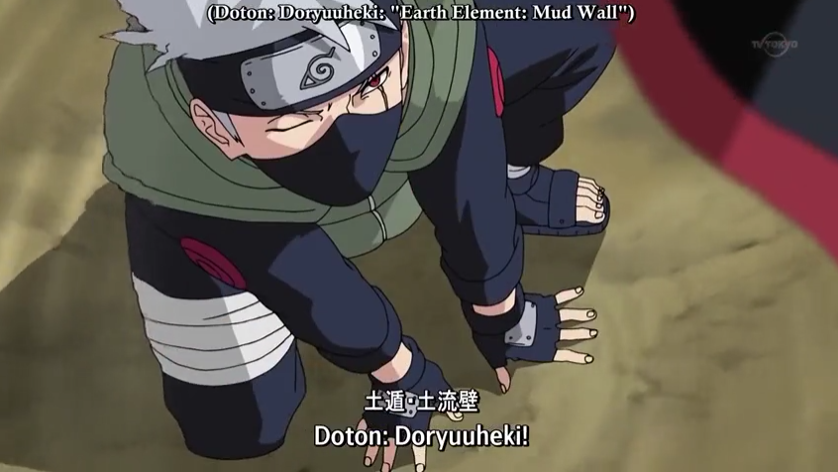
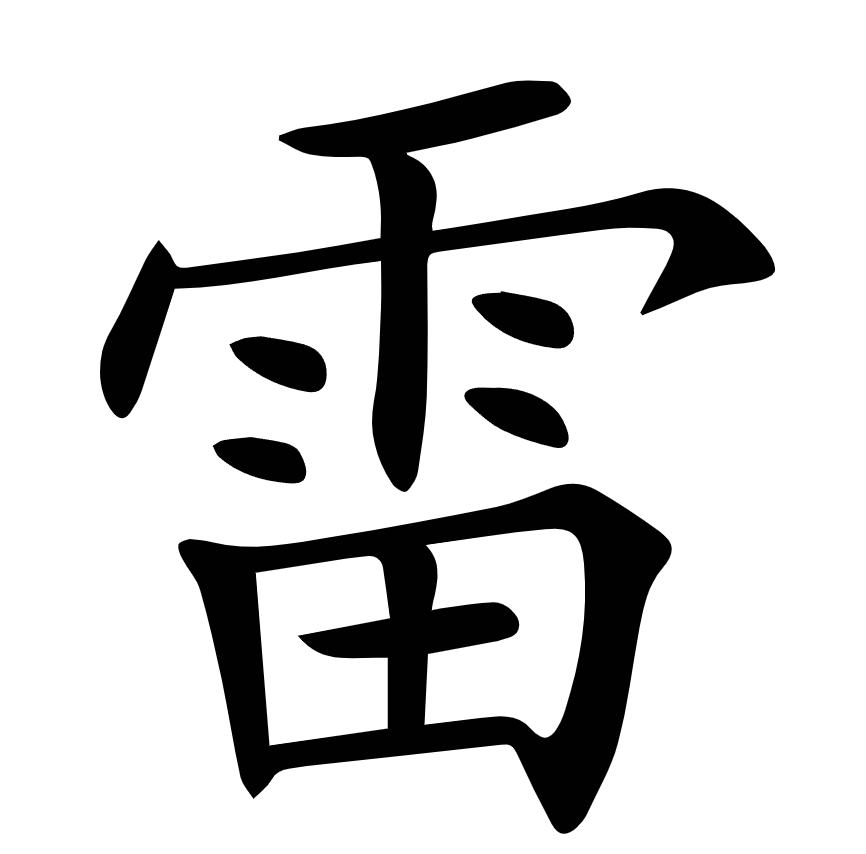
雷
lightning, thunder
ex: 雷遁 Raiton
ill: 雷切 Raikiri
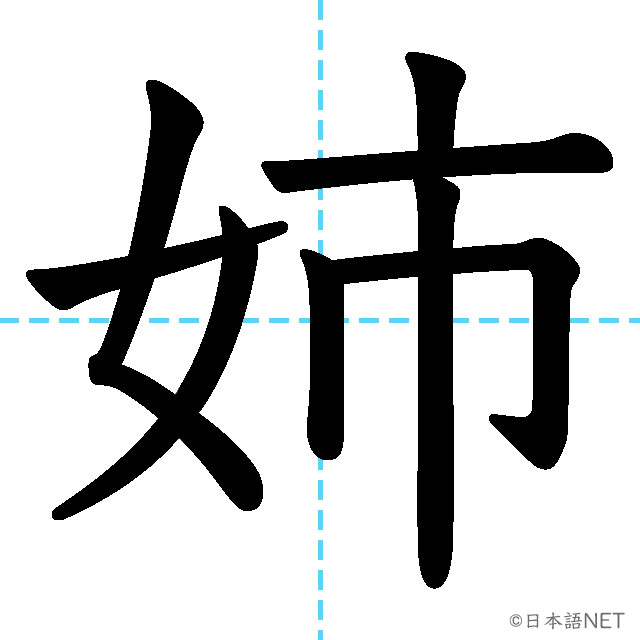
姉
sister
Pronounced Ane
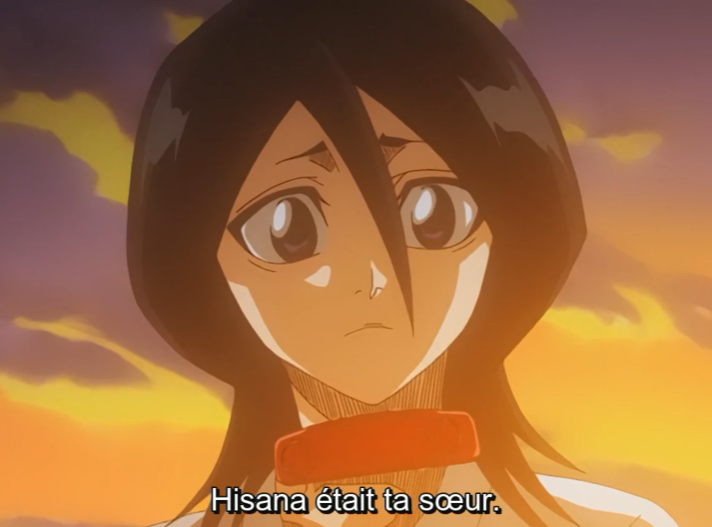
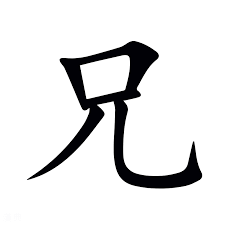
兄
older brother, elder brother
Pronounced Ani [as word] or Nii
ill: Itachi à Sasuke: “Madara ga shinde iru to iu no wa omae no kattena omoikomi da. Katsute omae ga ore o yasashii ani da to omoikonde ita yō ni na.“ (Past Progressive) <=> マダラが死んでいるというのはお前の勝手な思い込みだ 。 かつてお前が俺を優しい兄だと思い込んでいたようにな 。: Madara being dead was your own convenient assumption. Just like (ように) you were once convinced that I was a kind older brother.
ill: Itachi racontant l’histoire de Madara et son frère qui ont éveillé le Mangekyô Sharingan: “Futari wa sono dōryoku o motte Uchiha o tabane, ani no Madara wa rīdā to natta.“ (masu stem car suivi) <=> 2人はその瞳力をもって うちはを束ね、兄のマダラはリーダーとなった。: The two of them unified the Uchiha [clan] by means of (o motte) their ocular powers, and Madara, the elder brother, became its leader.
ex: お兄さん Onii-san
ill: Urahara à Karin: “Toki ni, onii-san wa aikawarazu desu ka?” <=> 時に, お兄さんは 相変わらずです か?: By the way, Ichigo n’a pas changé ?
ex: 兄弟 Kyôdai: siblings, brothers
ill: Sasuke à Saï qui lui dit que Naruto le considère comme un frère: “Ore no kyōdai wa koroshitai otoko. Tada hitori dake da” (Tai Present Indicative Form) <=> 俺の兄弟は殺したい男。 ただ一人だけだ: My brother is the man I want to kill. There’s only one [of them].
ill: Itachi racontant l’histoire de Madara et son frère: “Futari wa Sharingan o kaigan shi, kyōdai no na wa itsushika ichizoku no naka demo tokubetsuna mono ni natte itta.“ (masu stem car suivi par verbe) <=> 二人は写輪眼を開眼し、兄弟の名はいつしか一族の中でも特別なものになっていった。: Both awakened the Sharingan, and before long (itsushika), their names became special even within the clan.
ill: Itachi racontant l’histoire de Madara et son frère: “Kyōdai wa sorezore no daijina mono-tachi o te ni kake, tsuini Mangekyō Sharingan o kaigan shita no da.“ (masu stem) <=> 兄弟はそれぞれの大事な者たちを手にかけ、ついに万華鏡写輪眼を開眼したのだ。: The brothers each (sorezore) killed their important persons and finally awakened the Mangekyô Sharingan.
![<p>older brother, elder brother</p><p>Pronounced Ani [as word] or Nii</p><p>ill: Itachi à Sasuke: “Madara ga shinde iru to iu no wa omae no kattena omoikomi da. Katsute omae ga ore o yasashii ani da to <em>omoikonde ita</em> yō ni na.“ (<em>Past Progressive</em>) <=> マダラが死んでいるというのはお前の勝手な思い込みだ 。 かつてお前が俺を優しい兄だと思い込んでいたようにな 。: Madara being dead was your own convenient assumption. Just like (ように) you were once convinced that I was a kind older brother.</p><p>ill: Itachi racontant l’histoire de Madara et son frère qui ont éveillé le Mangekyô Sharingan: “Futari wa sono dōryoku o motte Uchiha o <em>tabane</em>, ani no Madara wa rīdā to natta.“ (<em>masu stem</em> car suivi) <=> 2人はその瞳力をもって うちはを束ね、兄のマダラはリーダーとなった。: The two of them unified the Uchiha [clan] by means of (<em>o motte</em>) their ocular powers, and Madara, the elder brother, became its leader.</p><p><u>ex</u>: お兄さん Onii-san</p><p>ill: Urahara à Karin: “Toki ni, onii-san wa aikawarazu desu ka?” <=> 時に, お兄さんは 相変わらずです か?: By the way, Ichigo n’a pas changé ?</p><p><u>ex</u>: 兄弟 Kyôdai: siblings, brothers</p><p>ill: Sasuke à Saï qui lui dit que Naruto le considère comme un frère: “Ore no kyōdai wa <em>koroshitai</em> otoko. Tada hitori dake da” (<em>Tai Present Indicative Form</em>) <=> 俺の兄弟は殺したい男。 ただ一人だけだ: My brother is the man I want to kill. There’s only one [of them].</p><p>ill: Itachi racontant l’histoire de Madara et son frère: “Futari wa Sharingan o kaigan <em>shi</em>, kyōdai no na wa itsushika ichizoku no naka demo tokubetsuna mono ni natte itta.“ (<em>masu stem</em> car suivi par verbe) <=> 二人は写輪眼を開眼し、兄弟の名はいつしか一族の中でも特別なものになっていった。: Both awakened the Sharingan, and before long (<em>itsushika</em>), their names became special even within the clan.</p><p>ill: Itachi racontant l’histoire de Madara et son frère: “Kyōdai wa sorezore no daijina mono-tachi o <em>te ni kake</em>, tsuini Mangekyō Sharingan o kaigan shita no da.“ (<em>masu stem</em>) <=> 兄弟はそれぞれの大事な者たちを手にかけ、ついに万華鏡写輪眼を開眼したのだ。: The brothers each (<em>sorezore</em>) killed their important persons and finally awakened the Mangekyô Sharingan.</p>](https://knowt-user-attachments.s3.amazonaws.com/7b2b687a-134f-4130-95cf-439a27e59ad9.png)
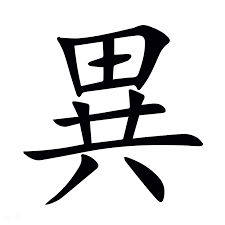
異
uncommon; queerness; strangeness; unusual
ex: 特異 Tokuina: unique, singular, peculiar, special (異=uncommon, queer, curious)
ill: Aizen about the power of the Hôgyoku: “Sado Yasutora ga, Inoue Orihime ga, tokuina chikara o yobiokosareta no wa, karera jishin no muryoku o karera ga kokoro no soko kara norotta kara da.” <=> 茶渡泰虎が井上織姫が特異な力を呼び起こされたのは彼ら自身の無力を彼らが心の底から呪ったからだ。: The reason Sado Yasutora and Inoue Orihime had unique powers (tokuina chikara) that were awakened (yobiokosu) is because they (karera) cursed (norou) their own helplessness from the bottom of their hearts.
ex: 異変 Ihen: unusual event; strange occurrence; strange phenomenon; something abnormal; change (for the worse)
ill: Itachi racontant que Madara était devenu leader des Uchicha après que lui et son frère aient éveillé le Mangekyô Sharingan: “Shikashi, junchō datta Madara no mi ni aru ihen ga shōji hajimeru.” (masu stem) <=> しかし、順調だったマダラの身に ある異変が生じ始める。: But although [everything] had been going smoothly, something abnormal began to Madara’s body/life (metaphorical).
ex: 異なるKotonaru: to be different, to differ, to vary
À ne pas confondre avec 変わってる Kawatteru: to change
ill: Aizen à Komamura qui l’a attaqué avec puissance: “Osoraku wa ganrai 'chikara' to iu kotoba no ninshiki sono mono ga, kimitachi to watashi de wa 異natte iru no da.“ (Progressive) <=> 恐らくは元来”力”という言葉の認識そのものが 君たちと私では異なっているのだ: I guess (osoraku) the perception/understanding (ninshiki) of the word 'power' (‘chikara’ to iu kotoba) itself (sono mono) is different (異natte) between you and me (kimitachi to watashi).
![<p>uncommon; queerness; strangeness; unusual</p><p><u>ex</u>: 特異 Tokuina: unique, singular, peculiar, special (異=uncommon, queer, curious)</p><p>ill: Aizen about the power of the Hôgyoku: “Sado Yasutora ga, Inoue Orihime ga, tokuina chikara o yobiokosareta no wa, karera jishin no muryoku o karera ga kokoro no soko kara norotta kara da.” <=> 茶渡泰虎が井上織姫が特異な力を呼び起こされたのは彼ら自身の無力を彼らが心の底から呪ったからだ。: The reason Sado Yasutora and Inoue Orihime had unique powers (<em>tokuina chikara</em>) that were awakened (<em>yobiokosu</em>) is because they (<em>karera</em>) cursed (<em>norou</em>) their own helplessness from the bottom of their hearts.</p><p><u>ex</u>: 異変 Ihen: unusual event; strange occurrence; strange phenomenon; something abnormal; change (for the worse)</p><p>ill: Itachi racontant que Madara était devenu leader des Uchicha après que lui et son frère aient éveillé le Mangekyô Sharingan: “Shikashi, junchō datta Madara no mi ni aru ihen ga <em>shōji</em> hajimeru.” (<em>masu stem</em>) <=> しかし、順調だったマダラの身に ある異変が生じ始める。: But although [everything] had been going smoothly, something abnormal began to Madara’s body/life (metaphorical).</p><p><u>ex</u>: 異なるKotonaru: to be different, to differ, to vary</p><p>À ne pas confondre avec 変わってる Kawatteru: to change</p><p>ill: Aizen à Komamura qui l’a attaqué avec puissance: “Osoraku wa ganrai 'chikara' to iu kotoba no ninshiki sono mono ga, kimitachi to watashi de wa 異<em>natte iru</em> no da.“ (<em>Progressive</em>) <=> 恐らくは元来”力”という言葉の認識そのものが 君たちと私では異なっているのだ: I guess (<em>osoraku</em>) the perception/understanding (<em>ninshiki</em>) of the word 'power' (<em>‘chikara’ to iu kotoba</em>) itself (<em>sono mono</em>) is different (異<em>natte</em>) between you and me (<em>kimitachi to watashi</em>).</p>](https://knowt-user-attachments.s3.amazonaws.com/505a40f4-59a7-4328-8805-117182ab4c97.png)
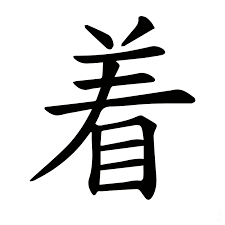
着
don; arrive; wear; counter for suits of clothing
ex: 着物 Kimono
ex: 行き着くIkitsuku: to arrive (at one's destination); to reach, to come to a head; to reach a conclusion; to culminate (in); to end up
ill: Itachi parlant de Madara qui devenait aveugle: “Kono me wa tokubetsu da to. Tsukaeba tsukau hodo fūin sare, ikitsuku saki wa mattaku no yami.” (Passive stem form) <=> この眼は特別だと。使えば使うほど封印され、行き着く先はまったくの闇。: These eyes are special. The more you used them, the more they are sealed, and the destination they lead to is complete darkness.
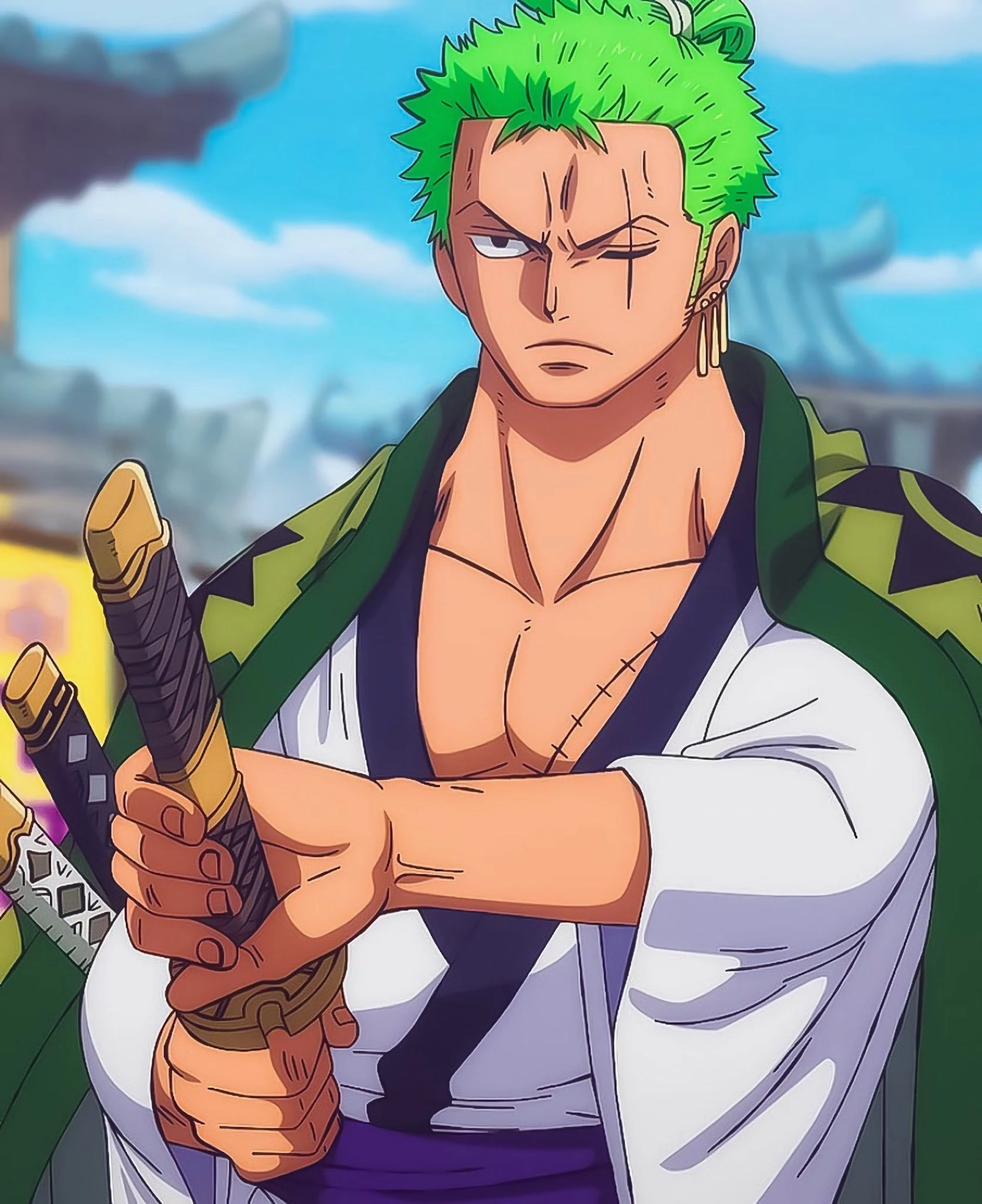
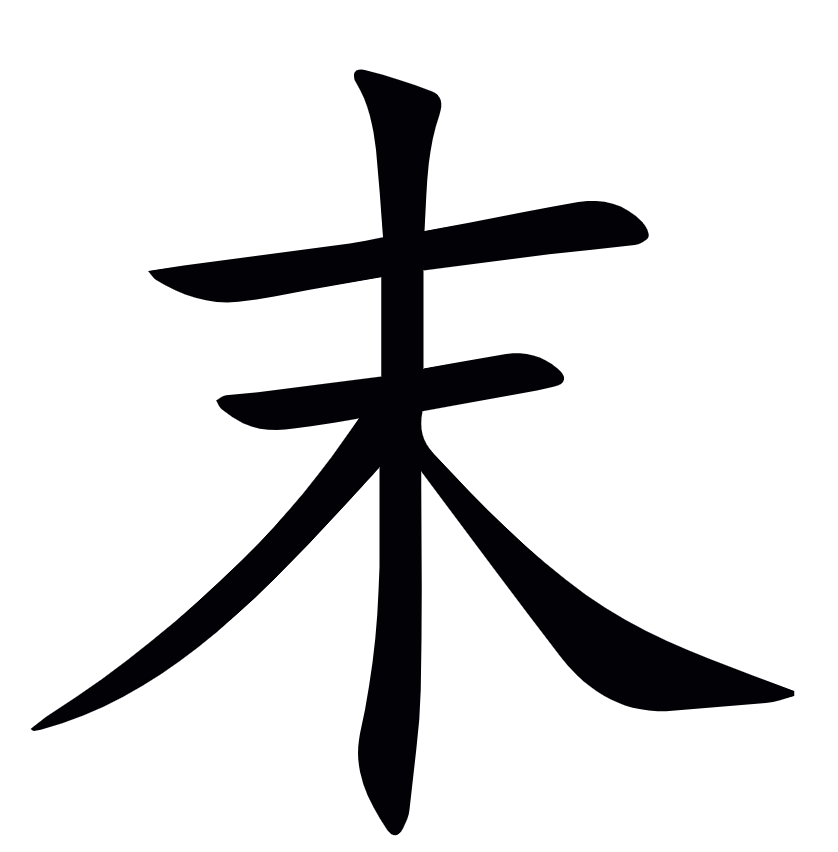
末
end, last part
ex: 末路 Matsuro: last days, the end, one's fate
ill: Itachi à Sasuke sur les risques de cécité du Mangekyô Sharingan: “Kore ga Mangekyō Sharingan no matsuro da.“ <=> これが 万華鏡写輪眼の末路だ。: This is the fate of the Mangekyô Sharingan
ex: 結末 Ketsumatu : outcome, conclusion
ill: Aizen aux Vizards et capitaines: “Ukatsu ni chikadzukouga shinchō ni chikadzukouga, aru i wa mattaku chikadzukazu tomo subete no ketsumatsu wa onaji koto” (Plain Presumptive Form; Formal Present Indicative Negative Form) <=> うかつに近付こうが慎重に近付こうが、或るいは全く近付かずとも全ての結末は同じ事 : Que vous vous approchiez avec négligence, prudence ou pas du tout, le résultat final est le même. [とも= without after neg verb]
![<p>end, last part</p><p><u>ex</u>: 末路 Matsuro: last days, the end, one's fate</p><p>ill: Itachi à Sasuke sur les risques de cécité du Mangekyô Sharingan: “Kore ga Mangekyō Sharingan no matsuro da.“ <=> これが 万華鏡写輪眼の末路だ。: This is the fate of the Mangekyô Sharingan</p><p><u>ex</u>: 結末 Ketsumatu : outcome, conclusion</p><p>ill: Aizen aux Vizards et capitaines: “Ukatsu ni <em>chikadzukouga</em> shinchō ni <em>chikadzukouga</em>, aru i wa mattaku <em>chikadzukazu</em> tomo subete no ketsumatsu wa onaji koto” (<em>Plain Presumptive Form</em>; <em>Formal Present Indicative Negative Form</em>) <=> うかつに近付こうが慎重に近付こうが、或るいは全く近付かずとも全ての結末は同じ事 : Que vous vous approchiez avec négligence, prudence ou pas du tout, le résultat final est le même. [とも= without after neg verb]</p>](https://knowt-user-attachments.s3.amazonaws.com/aa11f992-a38b-4f18-ac49-85d6561c4438.png)
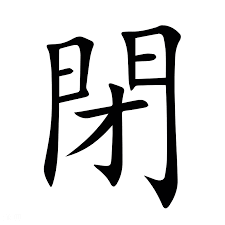
閉
close, shut
ex: 閉じる Tojiru: to close (e.g. book, eyes, meeting, etc.); to shut
ill: Itachi à Sasuke à propos du risque du Mangekyô Sharingan: “Ōkina dōryoku... chikara o eru kawari ni, sono chikara wa mizukara toji, hikari o ushinau.” (masu stem) <=> 大きな瞳力…力を得る代わりに、その力は自ら閉じ、光を失う: Tremendous dôjutsu... In exchange for that power gain, that power closes itself and loses its light.
ex: 幽閉 Yuuhei: imprisonment, incarceration
ill: Aizen about les capitaines des 13 divisions: “Daga ima wa sono Chū kara san'nin ga rihan shi yo’nin ga yuuhei” <=> だが今はその中から三人が離反し4人が幽閉 : Mais 3 ont déserté, 4 sont emprisonnés.
=> 幽閉する: to imprison, to incarcerate, to confine
ill: Aizen qui a emprisonné Ichigo-tachi: “Sarani wa sore ni kasei shita yo-nin mono taichō o kono Hueco Mundo ni yuuhei suru koto ni mo seikō shita” <=> 更にはそれに加勢した4人もの隊長をこの虚圏に幽閉する事にも成功した: Furthermore, I succeeded (seikō shita) in imprisoning the 4 commanders who assisted them (kasei shita) in this Hueco Mundo.
